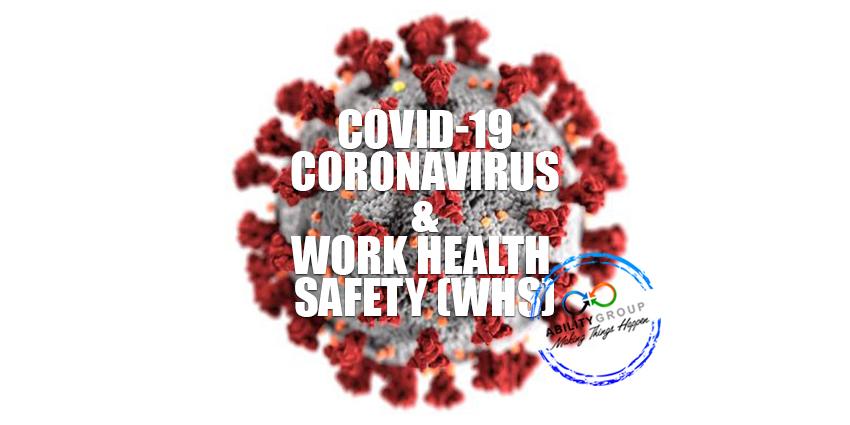The COVID?19 pandemic has transformed the way businesses manage workplace health and safety. Employers, workers, and regulators must work together to ensure that workplaces remain safe, compliant, and resilient. For organisations like ABILITY GROUP, understanding the connection between Coronavirus (COVID?19) and WHS obligations is vital to protecting employees and sustaining business operations.
With the World Health Organisation (WHO) having declared coronavirus (COVID-19) a pandemic, Australian employers need to ensure that they are taking active steps to monitor risk to employees and others. Below we summarise from key authorities, key questions and answers regarding WHS and COVID-19.
Most at risk of serious infection
- People with compromised immune systems
- Aboriginal and Torres
Strait Islander peoples (as they have higher rates of chronic illness) - people with chronic
medical conditions - travellers who have
recently returned from overseas - those who have been in
close contact with someone who has been diagnosed with COVID-19 - people in group
residential settings and - people in detention
facilities
WHS processes
- Identify the hazards
- Assess the risks
- Control the risks
- Review the control measures
- Consult with workers and other duty holders
The latest physical/social distancing measures are outlined by the Australian Government Department of Health.
As a result of these measures, a number of restrictions are now in place on the range of venues and activities that businesses may operate.
For businesses remain able to trade, you must implement appropriate controls to manage the risk of exposure to COVID-19. What each business can do to manage the risk will depend on your specific workplace and the work functions performed. The 3 key things it is recommended you do are:
- maintain good hygiene and cleanliness of the workplace
- implement physical/social distancing by keeping everyone in your workplace physically apart
- use Protective Personal Equipment (PPE) appropriately
What facilities and supplies do employers need to provide?
- providing access to facilities for good hygiene. This includes; adequate supply of soap, water and toilet paper
- making sure these are kept clean, properly stocked and in good working order
What should businesses do to keep the workplace clean?
- Businesses should already have in place regular, scheduled cleaning of your workplace
- Frequently touched areas/surfaces should be cleaned several times a day. This includes; sinks, tapes, door knobs, elevator buttons, handrails, tables, reception areas, counter tops and Eftpos/Hicaps machines,etc.
Got a question or need help, please contact us to discuss.
Source: Safe Work Australia
Title: COVID-19
Read Time: 15+ minutes

